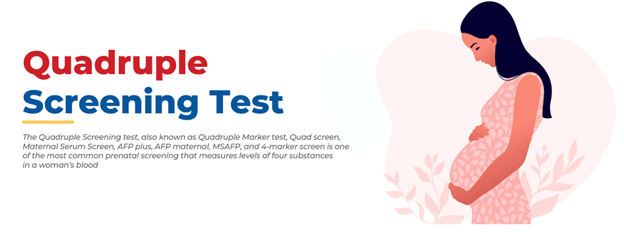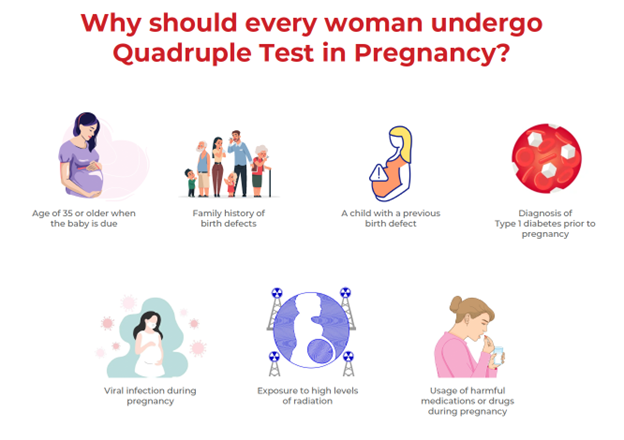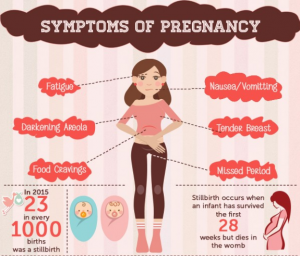All about Quadruple Screening (Marker) Test
Overview
The Quadruple Screening test, also known as Quadruple Marker test, Quad screen, Maternal Serum Screen, AFP plus, AFP maternal, MSAFP, and 4-marker screen, is one of the most common prenatal screening that measures levels of four substances in a woman’s blood:
- Alpha fetoprotein (AFP), a protein produced by the growing baby
- Human chorionic gonadotropin (hCG), a hormone produced in the placenta
- Unconjugated Estriol (uE3), a form of the hormone estrogen produced in the fetus and the placenta
- Inhibin A, another hormone released by the placenta

The levels of aforesaid four substances assess the risk to the baby from neural tube defects such as Spina bifida and certain chromosomal abnormalities such as Down syndrome (Trisomy 21), Trisomy 18.
Let us understand in detail why it is important to undergo the Quadruple marker test in pregnancy.
Why is the Quadruple Screening Test performed?
The Quadruple screening test is typically performed between the 15th and 20th weeks of the pregnancy i.e. during the second trimester. It evaluates the chances of carrying a baby who may have any of the following disorders:
- Down syndrome (Trisomy 21): A chromosomal disorder that causes lifelong intellectual disability and developmental delays. Down syndrome symptoms can include short, stocky physical size, with a short neck, flattened facial features, small ears, hands, and feet, delays in speech and language development, attention problems.
- Trisomy 18: A chromosomal disorder that is often fatal and causes severe developmental delays and abnormalities in the structure of the body.
- Spina bifida: A birth defect that occurs when a portion of the neural tube fails to develop or close properly, causing defects in the spinal cord and in the bones of the spine.
- Abdominal wall defects: In these birth defects, the baby’s intestines or other abdominal organs stick through the belly button.
Why should every woman undergo Quadruple Test in Pregnancy?
It is recommended that all pregnant women undergo Quadruple screening tests. However, It should be definitely done if a woman has any of the following risk factors:
- Age of 35 or older when the baby is due
- Family history of birth defects
- A child with a previous birth defect
- Diagnosis of Type 1 diabetes prior to pregnancy
- Viral infection during pregnancy
- Exposure to high levels of radiation
- Usage of harmful medications or drugs during pregnancy
How is the Quadruple Screening Test performed?
The Quadruple screening test is a simple blood test with no specific preparation required. It poses no risk of miscarriage or other pregnancy complications. For computing final results, the test also factors in a woman’s:
- Age
- Ethnic background
- Weight
- Baby’s gestational age (measured in weeks from the day of the last period to the current date)
What do normal Quadruple Screening test results mean?
In over 98% of pregnancies, normal Quadruple screening test results predict healthy babies and births without major complications. Although it doesn’t guarantee that the baby won’t have a chromosomal abnormality, single-gene disorder, or certain birth defects.
What do abnormal Quadruple Screening test results mean?
Quadruple screening test results that are not in the normal range do not necessarily mean there is a problem in the pregnancy. If the results are abnormal, further tests such as below may be recommended by the Doctor to confirm the diagnosis:
- Amniocentesis test is performed to detect chromosomal defects and infection in the foetus. .
- Tests to detect or rule out certain birth defects such as Down syndrome
- Genetic counseling
- Ultrasound to check the baby’s brain, spinal cord, kidneys, and heart

















